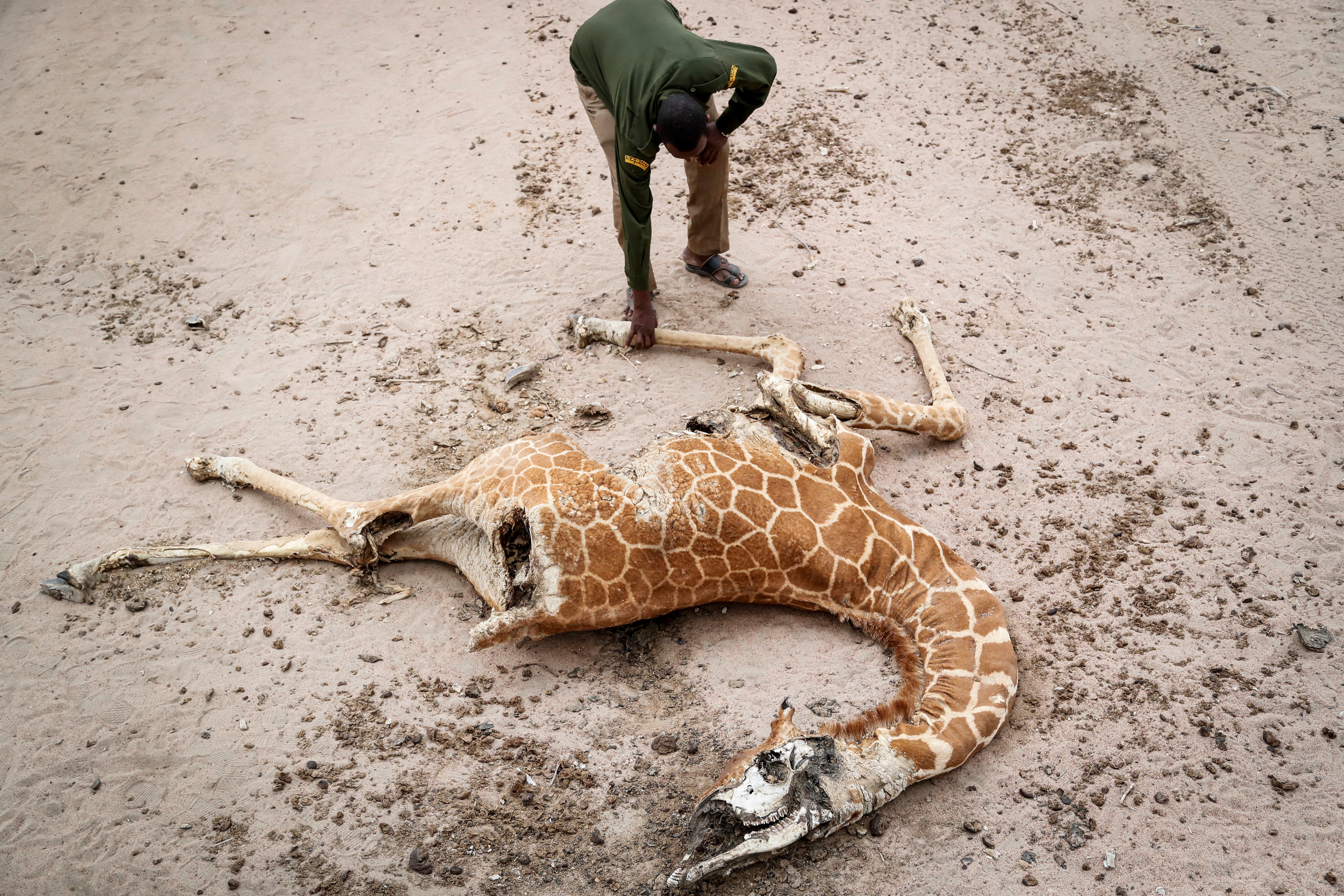AP PHOTOS: 'If they die, we all die': Drought kills in Kenya

Your support helps us to tell the story
From reproductive rights to climate change to Big Tech, The Independent is on the ground when the story is developing. Whether it's investigating the financials of Elon Musk's pro-Trump PAC or producing our latest documentary, 'The A Word', which shines a light on the American women fighting for reproductive rights, we know how important it is to parse out the facts from the messaging.
At such a critical moment in US history, we need reporters on the ground. Your donation allows us to keep sending journalists to speak to both sides of the story.
The Independent is trusted by Americans across the entire political spectrum. And unlike many other quality news outlets, we choose not to lock Americans out of our reporting and analysis with paywalls. We believe quality journalism should be available to everyone, paid for by those who can afford it.
Your support makes all the difference.The withered carcasses of livestock are reminders that drought has descended yet again in northern Kenya, the latest in a series of climate shocks rippling through the Horn of Africa
As world leaders address a global climate summit in Glasgow, pastoralists watch their beloved animals suffer from lack of water and food. Yusuf Abdullahi says he has lost 40 goats.
“If they die, we all die,” he says.
Kenya’s government has declared a national disaster in 10 of its 47 counties. The United Nations says more than 2 million people are severely food insecure. And with people trekking farther in search of food and water, observers warn that tensions among communities could sharpen.
Wildlife have begun to die, too, says the chair of the Subuli Wildlife Conservancy, Mohamed Sharmarke.
“The heat on the ground tells you the sign of starvation we’re facing,” he says.
Experts warn that such climate shocks will become more common across Africa, which contributes the least to global warming, but will suffer from it most.
“We do not have a spare planet in which we will seek refuge once we have succeeded in destroying this one,” the executive director of East Africa’s Intergovernmental Authority on Development, Workneh Gebeyehu, said last month while opening a regional early warning climate center in Kenya’s capital, Nairobi.
Kenyan President Uhuru Kenyatta agreed.
“Africa, while currently responsible for a negligible amount of total global greenhouse gas emissions, is under significant threat from climate change,” he said at the center’s opening. The continent is responsible for just 4% of global emissions.
Kenyatta was among the African leaders speaking at the global climate summit as they urged more attention and billions of dollars in financial support for the African continent.
___
Follow AP's climate coverage at https://apnews.com/hub/climate